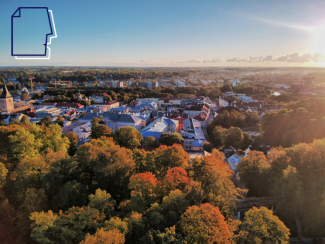
On last week of September Tilde's Research and Development team participated at the 8th International Conference “Human Language Technologies - the Baltic Perspective (Baltic HLT 2018) in Tartu, Estonia.
At Baltic HLT 2018 Tilde presented most recent results in machine translation, speech technologies and human-computer interaction. Several presentations were devoted to different aspects of machine translation (MT) – data quality (Matīss Rikters. Impact of Corpora Quality on Neural Machine Translation) and MT solutions for Estonian (Matīss Rikters, Mārcis Pinnis, Roberts Rozis. Advancing Estonian Machine Translation). Tilde also demonstrated MT solutions for EU Council Presidencies and public sector’s machine translation servicehugo.lv.
The collaborative work of Tilde’s researchers in Latvia and Lithuania describes development of Lithuanian speech recognition system that supports the transcription of user submitted audio recordings and real-time speech-to-text conversion. The developed system outperforms Google Cloud Speech ASR (Askars Salimbajevs and Jurgita Kapočiūtė-Dzikienė. General-Purpose Lithuanian Automatic Speech Recognition System.). Tilde also shared experience in development and evaluation of chatbots for customer support in Latvian (Daiga Deksne, Andrejs Vasiļjevs. Collection of Resources and Evaluation of Customer Support Chatbot.).
Biannual Baltic HLT conferences bring together scientists, developers, providers and users to discuss state-of-the-art of HLT in the Baltic states, to exchange information and to discuss problems, to find new synergies and to promote initiatives for international cooperation. Since the first Baltic HLT conference held in Riga in 2004, Baltic HLT conference has become the place for the sharing of new ideas and recent advances in human language technologies and to promote cooperation between the research communities of computer science and linguistics from the Baltic states and the rest of the world.